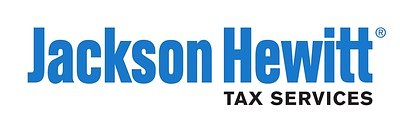
Tax Prep Surge: Jackson Hewitt Hiring Signals Complex Season, Two-Tiered Workforce Concerns
Jackson Hewitt’s plan to hire 15,000 reflects a looming tax season complicated by new laws. But a deeper look reveals concerns about a two-tiered workforce within the franchise model.
Tax Prep Surge: Jackson Hewitt Hiring Signals Complex Season, Two-Tiered Workforce Concerns
Sarasota, FL – November 1, 2025 – Jackson Hewitt Tax Services’ announcement of a nationwide hiring surge – 15,000 seasonal employees – is more than just a bid to meet demand. It’s a signal that the 2026 tax season will be significantly more complex for millions of Americans, driven by recent changes in tax law. But a closer examination of the company’s franchise model reveals potential disparities in employment practices, raising questions about equity within its workforce.
As the tax filing season approaches, Jackson Hewitt is preparing for an influx of clients navigating updated rules surrounding the Child Tax Credit, adjustments to standard deductions, and new provisions impacting small business owners. The company’s “National Hiring Week,” launching November 3rd, aims to ensure sufficient staffing across its 5,200 locations, including those within Walmart stores.
“The scale of this hiring is indicative of the challenges taxpayers will face,” explains a tax policy analyst. “These changes aren’t minor tweaks. They require a deeper understanding of the rules and could easily lead to errors if individuals attempt to navigate them alone.”
Complexity Drives Demand
The anticipated increase in complexity isn’t just anecdotal. According to the Tax Foundation, roughly 30% of taxpayers could require professional assistance this year, a significant jump from previous years. This surge in demand is driving Jackson Hewitt’s aggressive hiring strategy, but it’s not unique. H&R Block is also looking to onboard around 10,000 seasonal employees, though TurboTax hasn’t disclosed specific numbers, focusing instead on expanding virtual services.
“We are seeing increased demand for tax preparation services, especially from those navigating the changes in credits and deductions,” says a spokesperson for Jackson Hewitt. “Our hiring efforts are focused on ensuring we have the qualified staff to provide accurate and reliable service to our clients.”
A Two-Tiered Workforce?
However, beyond the surface of increased demand, a deeper dive into Jackson Hewitt’s business model reveals potential inconsistencies in the employee experience. While company-owned locations generally offer comprehensive benefits packages and structured training programs, those operated under the franchise model can vary significantly.
“There’s a clear difference in what’s offered at the corporate-owned stores versus the franchises,” explains a former Jackson Hewitt employee who worked at both types of locations. “The corporate stores invested more in training and offered better benefits, but it wasn’t always the case at the franchises. It felt like a two-tiered system.”
Online employee reviews corroborate this assessment, with numerous comments highlighting discrepancies in pay, benefits, and opportunities for advancement between company-owned and franchised locations. One former franchisee employee shared, “Training was minimal, and it felt like we were thrown into the deep end without much support. Benefits were limited compared to what I’ve heard from friends working at corporate stores.”
This disparity raises concerns about equitable employment practices within the Jackson Hewitt network. While the franchise model offers entrepreneurial opportunities, it also introduces potential for inconsistencies in employee standards and treatment. A labor advocate commented, “Franchise models can be beneficial, but they require careful oversight to ensure that all employees, regardless of location, receive fair compensation, benefits, and training. It’s essential to protect the rights of workers within these systems.”
Jackson Hewitt maintains that franchisees are expected to adhere to certain standards, but acknowledges that some variation is inevitable. “We work closely with our franchisees to ensure they are providing a positive work environment and competitive compensation packages,” says a company spokesperson. “We also offer training resources and support to help them attract and retain qualified employees.”
The Future of Tax Preparation
Despite the challenges, the tax preparation industry is evolving. The increasing demand for virtual services is driving innovation in online tax filing platforms. Both Jackson Hewitt and its competitors are investing in technology to streamline the process and improve the customer experience. However, the human element remains crucial, particularly for those navigating complex tax situations.
“Technology can help simplify the process, but it can’t replace the expertise of a qualified tax professional,” says the tax policy analyst. “Many taxpayers will still need personalized guidance to ensure they are maximizing their refunds and complying with the law.”
As Jackson Hewitt ramps up its hiring efforts, it faces the dual challenge of meeting the growing demand for tax preparation services while ensuring equitable treatment for all its employees. Addressing the concerns surrounding its franchise model will be critical to maintaining a positive reputation and attracting top talent in a competitive market. Ultimately, a fair and supportive work environment will not only benefit employees but also contribute to a more reliable and trustworthy tax preparation experience for clients across the nation.
